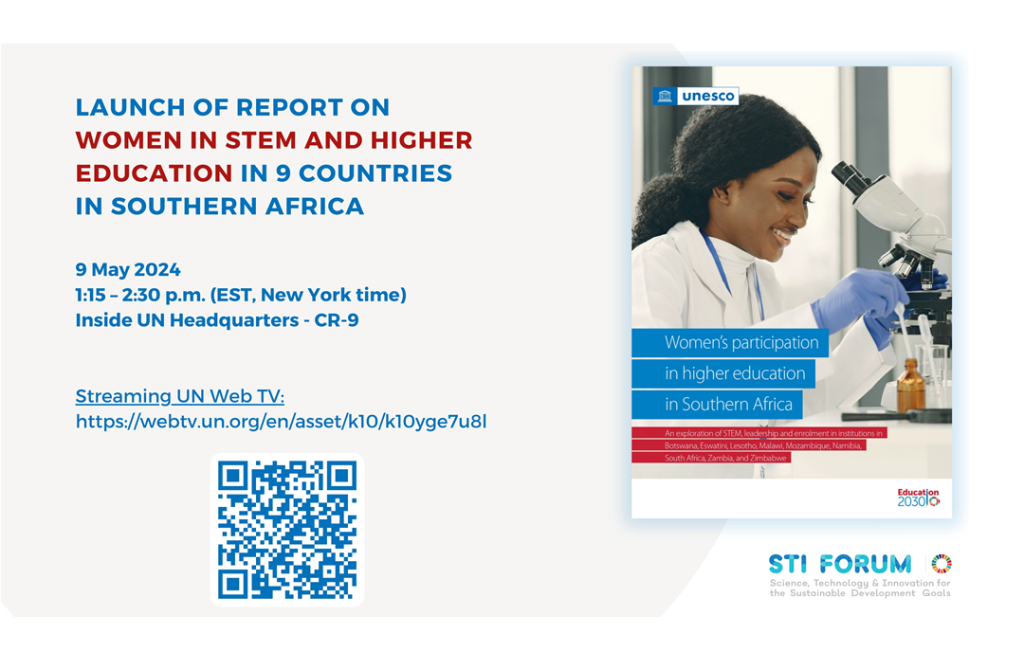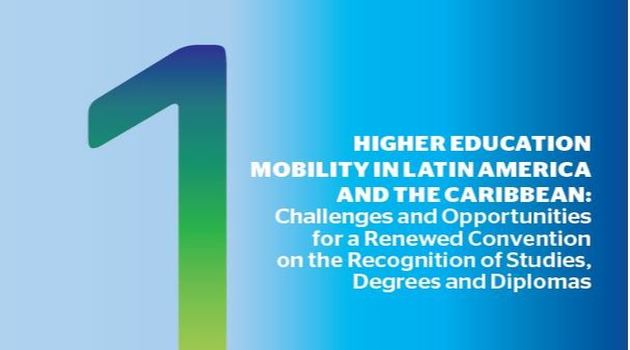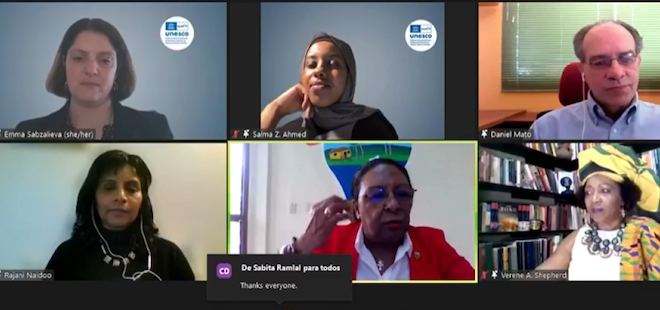Launch of Report on Women in STEM and Higher Education in 9 Countries in Southern Africa

In the past two decades, there has been substantial growth in the enrollment and graduation rates of both women and men in higher education worldwide, with expansion observed across Africa. Nevertheless, disparities persist in gender-specific participation within African countries’ higher education systems. These inequalities are particularly evident in various aspects, including the distribution of higher degree completions, discrepancies in the chosen fields of study between genders, and the employment landscape, where gender gaps persist notably in academic and senior managerial roles within universities. Enhancing gender equality within tertiary education, especially in STEM fields, drives innovation, opens up new avenues for economic empowerment for women, and has broader societal benefits by challenging traditional gender norms. These factors collectively contribute to the sustainable development of the region.
In this context, the UNESCO International Institute for Higher Education (UNESCO IESALC) and the UNESCO Regional Office for Southern Africa (UNESCO Office in Harare) have conducted the research report ‘Women’s Participation in Higher Education in Southern Africa: An Exploration of STEM, Leadership, and Enrolment in Institutions in Botswana, Eswatini, Lesotho, Malawi, Mozambique, Namibia, South Africa, Zambia, and Zimbabwe‘ launched on May 9, 2024 at the 9th Multi-stakeholder Forum on Science, Technology and Innovation for the Sustainable Development Goals (STI Forum), from 1:15 to 2:30 p.m (New York time, GMT-4), in the CR-9 Room at UN Headquarters in New York, USA. The event was streamed live on the UN Web TV: https://webtv.un.org/en/asset/k10/k10yge7u8l
The joint study provides evidence on women’s participation in higher education in the countries involved, raises awareness on the topic in Africa, and offers policy recommendations for fostering gender equality in the region. Key discussion points include:
- Positive shifts and emerging trends
- Persisting challenges with a specific focus on STEM disciplines
- Implications for policymaking and intervention strategies
- Potential avenues for future research and intervention
References to this study were recently included in UNESCO ROSA’s 2022 Report, and in its Global Priority Africa Flagships Report.
Access the side event program of the STI Forum
Contact: Info-iesalc@unesco.org

RELATED ITEMS








